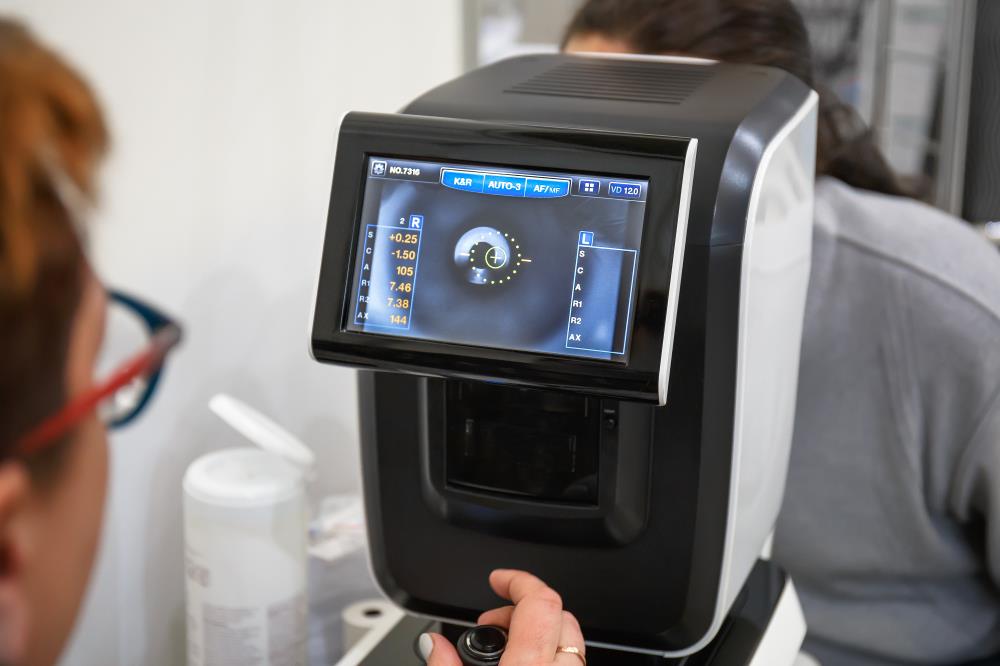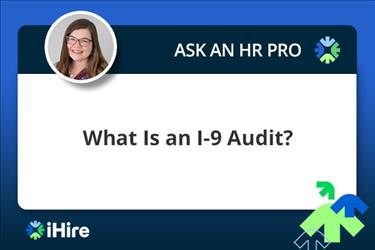- Employer Resources
- |
- Last Updated: March 20, 2019

What to Look for in a Certified Ophthalmic Technician
Looking for new staff is never an easy thing. Not only do you have to invest time and energy sifting through resumes and setting up interviews for your clinic, but often you are working under the stressful situation of having an understaffed office as well.
If you need to hire an ophthalmic technician, there are a few specific traits and credentials to look out for. While finding the “perfect” certified ophthalmic assistant or other health personnel will likely require looking through plenty of applicants who are not the right fit, it will be worth it when you welcome a qualified technician to your team. Here are some things to look out for during the hiring process to ensure you have found the best possible applicant:
The Ability to Work Well with Patients (and Coworkers)
Medical settings are intellectually stimulating environments but, ultimately, a big part of the job of an ophthalmic technician is working with people. Your certified ophthalmic technician does not have to be a super bubbly people person, but they should definitely be able to act politely and respectfully around patients.
When reviewing the career histories of an ophthalmic technician, consider what experience they have in customer service, within the medical field and outside of it. It is also a bonus if a candidate has experience working with patients that tend to have more specialized needs, such as children or seniors.
Also, consider whether or not a candidate can get along with the rest of your team. Collaboration and communication are essential to a successful work environment, and the last thing you need is a coworker who does not get along well with others.
During the interview process, give applicants a chance to tour the office space and meet their potential coworkers. It should be very telling whether or not they feel comfortable meeting new people.
A Respect for Safety
Safety guidelines are not something that should ever be skirted around in a medical setting. All of your candidates should at least have the Certified Ophthalmic Technician (COT) credential from the Joint Commission on Allied Health Personnel in Ophthalmology (JCAHPO), but respect and understanding of safety go beyond the certification process.
During interviews, give hypothetical scenarios revolving around health and safety concerns of the patients. This should be one of the most important elements of the interview to focus on, as these answers directly relate to how each candidate would work after being hired.

Punctuality
Applicants who are late or just barely on time to the interview are not off to a great start. In ophthalmology, patients are everything, but in the lives of patients, medical appointments are just one of many things they have to prioritize in their busy schedules.
Starting appointments on time is a must, for both patient satisfaction and the time constraints medical professionals experience. On a fully booked appointment day, a late employee can mean someone will be unable to be seen in a reasonable amount of time, which is unacceptable. Above all else, punctuality shows the respect that a candidate has for you, your workplace, and your time.
A late start might seem like a minor detail if the interview is otherwise very successful, but punctuality (or the lack of it) is something that must never be ignored.
Flexibility and Quick Thinking
In ophthalmology, no two days are exactly alike. Certified ophthalmic technicians should always be flexible and understand that unpredictable scenarios may occur on a daily basis. They should be able to quickly pivot their focus as needed and think on their feet in case of an emergency.

Glowing References
After a great interview, sometimes it can feel easy to forgo the process of contacting references. You may glance to see their certification, the latest training program they have completed, the level of their education, and/or their previous work experience. And, if you are in urgent need of a new employee, references can feel like a waste of time. But appearances can ultimately be deceitful, and the experienced, composed candidate you met in the interview may not be as qualified as you initially thought.
It’s a good idea to call the references your candidates give you, and watch out for any red flags. One particular red flag is if the references they have given you are outside the medical field (such as teachers or employers they had before becoming a technician). This may reflect a lack of experience or unpleasant circumstances during their past technician jobs. If this is the case, ask if you have permission to call their previous technician employers. Overall, these are the references you want to hear from most.
Another major red flag is references that are family, friends, or neighbors. In fact, in your job listing or interview request, you should specify that these references are unacceptable.
Organization and Preparation Skills
Certified ophthalmic technicians should be organized and well-prepared for their days if they want to succeed in this occasionally stressful and fast-paced environment. Watch carefully for any signs in their interview that an applicant is not very organized.
If they do not bring a copy of their resume, or bring one that is crumpled, it is a bad sign. The same goes for candidates who do not seem prepared for common questions, did not read the interview request properly, and do not seem to have put much effort into their appearance. The last point might seem vain, but it may reflect that the candidate did not give themselves enough time before the interview to look as presentable as possible.

A Strong Interest in the Field
It’s hard to have a good experience with an employee who sees your practice as nothing more than an opportunity to make money. Preferably, your technician will have a genuine interest in ophthalmology.
Pay close attention to the questions that interviewees ask you. Do they seem keen on getting to know you and your coworkers? Are they excited to learn about the duties involved and open to taking on more responsibility? These are all traits reflective of someone genuinely interested in joining your team and making a positive contribution. Ultimately, this is all you could possibly want from a certified ophthalmic technician.
RELATED RESOURCES
Hiring? You're in the Right Place.
- Reach unique talent: 51% of our candidates aren't using other job boards
- Connect your ATS and get 6x more applications with iHire's apply process
- Get matching candidate resumes sent straight to your inbox
We Value Your Privacy




![Skills Over Degrees: The Future of Hiring [Video Webinar]](https://p-gpb8fhd4b9fbh6fy.z01.azurefd.net/cms/2f6c3996-55d2-41a7-92cd-801a93177d31/4adbd698-ab4c-4e81-9823-8c8cfade1f76-md.png)